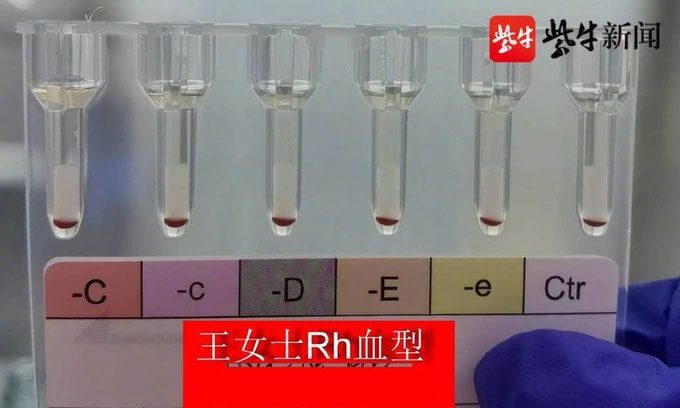Rh-null, also known as the “golden blood” group, is the rarest blood type in the world. Since 1961, there have been nearly 50 documented cases of individuals with this blood type globally.
According to Global Times, Taizhou Jiangsu Hospital in Jiangsu, China, recently discovered Rh-null blood type in a female patient suffering from severe anemia during a blood type and antibody test. The patient’s sister was later found to have the same blood type.

Rh-null is the rarest blood type in the world. (Photo: Global Times).
It is referred to as “golden blood” and is rarer than the Rh-negative blood type, often called panda blood.
The first person in the world identified with Rh-null blood was an Australian woman in 1961. To date, there have been nearly 50 individuals documented with this blood type globally, including four in China.
Individuals with Rh-null blood lack Rh antigens on their red blood cells, allowing them to donate blood to anyone with any other blood type without the risk of rejection. However, having such a rare blood type can complicate matters, as they may not be able to receive blood transfusions or organ transplants from others.
Due to its rarity, “golden blood” is typically only donated in the most extreme circumstances, as individuals with this blood type cannot receive any blood except their own Rh-null blood. This means that those with Rh-null blood have a significantly higher risk of dying from blood loss compared to the general population.
If they receive Rh blood that is not Rh-null, the antibodies in their blood could react with the donor’s blood cells, causing an immune response that can potentially be fatal immediately.





















































